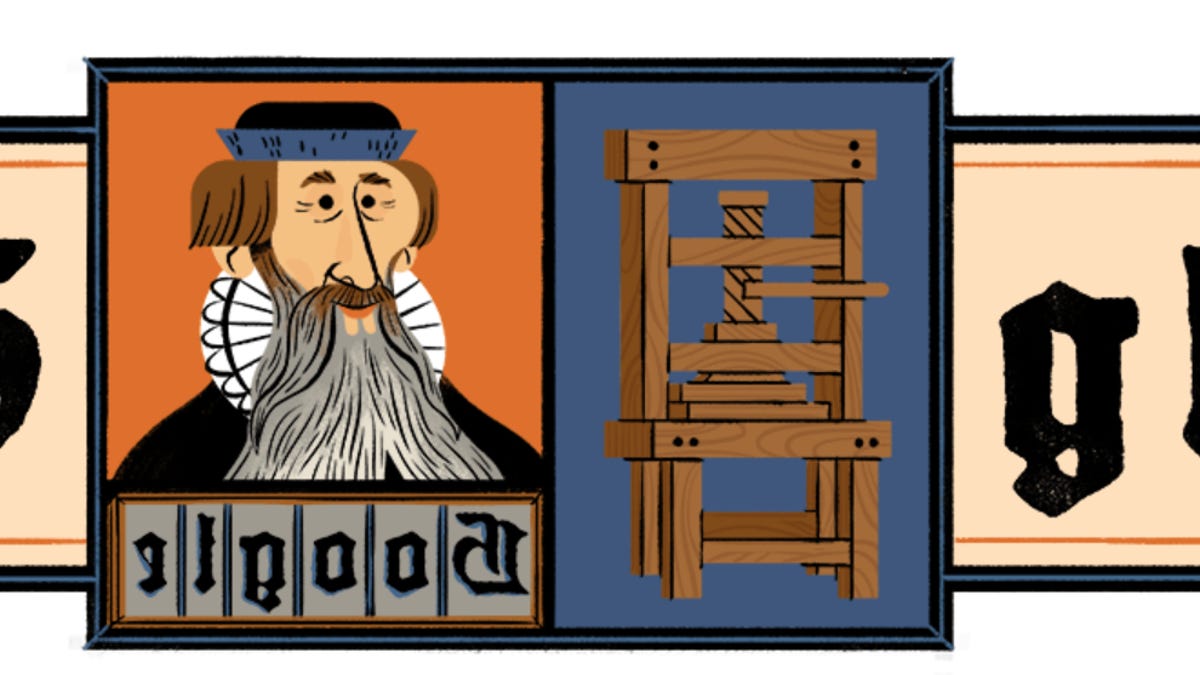Google Doodle honors printing press pioneer Johannes Gutenberg
The German inventor's movable-type printing press revolutionized the publishing industry more than 500 years ago.

Google is celebrating Johannes Gutenberg, inventor of the movable-type printing press.
Few people in history have had as great an impact on the world as Johannes Gutenberg. In the 15th century, the German inventor introduced movable-type printing to Europe, sparking a revolution that helped spread knowledge to the masses.
To honor this milestone achievement, Google dedicated Wednesday's Doodle to Gutenberg on the 21st anniversary of the Gutenberg Museum launching a retrospective exhibit on his life.
Born in Germany around 1400, Gutenberg invented the process for movable type in 1439, essentially retrofitting a wooden screw press in common use at the time. His process replaced handwritten manuscripts and wooden block printing with a process that involved a combination of movable metal type, adjustable molds and proprietary oil-based inks.
Gutenberg started churning out a book on Latin grammar around 1451, but his most notable work came in 1455 with what's now referred to as the Gutenberg Bible. It had 42 lines on each page and cost the equivalent of three years wages for the average clerk, but it could be produced faster and cheaper than a manuscript version, which could take a year to hand letter.
In a few decades, Gutenberg's invention would spread to more than 200 cities around Europe, and by the 16th century, presses had produced an estimated 200 million books.
Gutenberg's revolutionary system ushered in an era of mass communication and allowed for the economical mass production of printed books. His invention became so synonymous with communication that it lent its name to a then-burgeoning mass media field called the press.
The Gutenberg Project, the oldest library of digitized books, is named in his honor. The volunteer effort encourages the creation and distribution of free e-books and counts more than 60,000 items in its collection.

